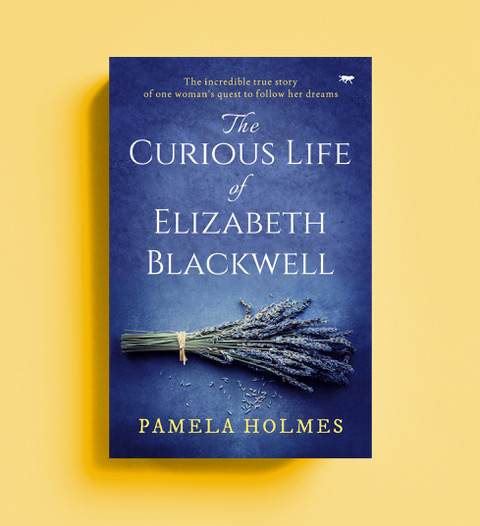
Research can inspire and enable you to write with greater confidence. Just don't allow it to interfere with your narrative!
In 2016 I had never heard of Elizabeth Blachrie Blackwell. Then someone at Chawton House, a research library housing the work of early women poets and playwrights, mentioned a new garden being established there which would include plants from a book Elizabeth had drawn in the 1730s. Britain’s first female botanical illustrator whose book, A Curious Herbal, was a British Library treasure. This was all news to me. One afternoon, I went to the library to find out more.
The librarian handed me a leather-bound tome and a pair of white gloves. Leafing through it, I became captivated by the delicate engravings of herbal specimens, their leaves, roots and seeds painted in beautiful watercolours and beneath the drawings, short explanations of how the herb should be prepared to treat different ailments. The librarian had told me that the ‘herbals’ had originally been sold as single sheets to apothecaries and the public; that Elizabeth had made a lot of money.
Once again happenstance blew a story into my life. I’ve written before about the role serendipity plays in my work. When I stumbled across the story of Mildred Holland, the Victorian vicar’s wife who spent six years on her back painting an angel ceiling in her parish church, it set me off on a trail of research that led to my writing the novel, The Huntingfield Paintress. Now it seemed that once again, chance had presented with another story of a woman history had bypassed.
I dived into the research. Once I’d scoped out what’s known about Elizabeth Blackwell, I had to step sideways to deepen my understanding of her life and times. Desk-based research, hours in reference libraries, interviews with academics and visits to museums, down rabbit holes and dead ends, I had gathered more information than I could ever use in a novel. But for me submersion is a necessary stage of writing historical fiction. The material forms a boundary within which my imagination flourishes. Kept in its place, it gives me the confidence and freedom to write.
‘Murder your darlings’ is a piece of advice given to writers. (Often attributed to William Faulkner, it can be traced back to the English writer, Sir Arthur Quiller-Couch.) I knew I must take that guidance when I began to write The Curious Life of Elizabeth Blackwell. So I would write a scene, leave it for a few days and then read afresh. If any research impeded the flow of the story or ‘jumped out’, it was dumped. I told myself the research was not wasted; it was just extraneous for this book. My editor’s feedback during the structural edit was also helpful. There was push back several times on names and events and references. It made me reflect once again on what I’d included.
Telling hidden stories is a theme of my writing. Though Wyld Dreamers is not about one real woman, it tells a story of the traps and treats of the sexual revolution told through one female character in the 1970s. I find it fascinating to explore how women have dealt with the pressures and prospects which they face and how they find different ways to express their creativity.
The Curious Life of Elizabeth Blackwell is published by Bloodhound Books. It is available in paperback, on Kindle, and available in audiobook format from 1st April 2023.
I am the author of The Huntingfield Paintress and Wyld Dreamers (loosely based on my time living on a commune in Somerset) and also The Curious Life of Elizabeth Blackwell (published in October 2022). All of my books are published by Bloodhound Books. I write short stories, winning the Jane Austen Short Story Award in 2014, run writing workshops and I have spoken and been interviewed at literary events. I am represented by the literary agent Laura Morris.
Website: https://www.pamela-holmes.com/ | Follow me on Twitter @Pammieholmes
Comments